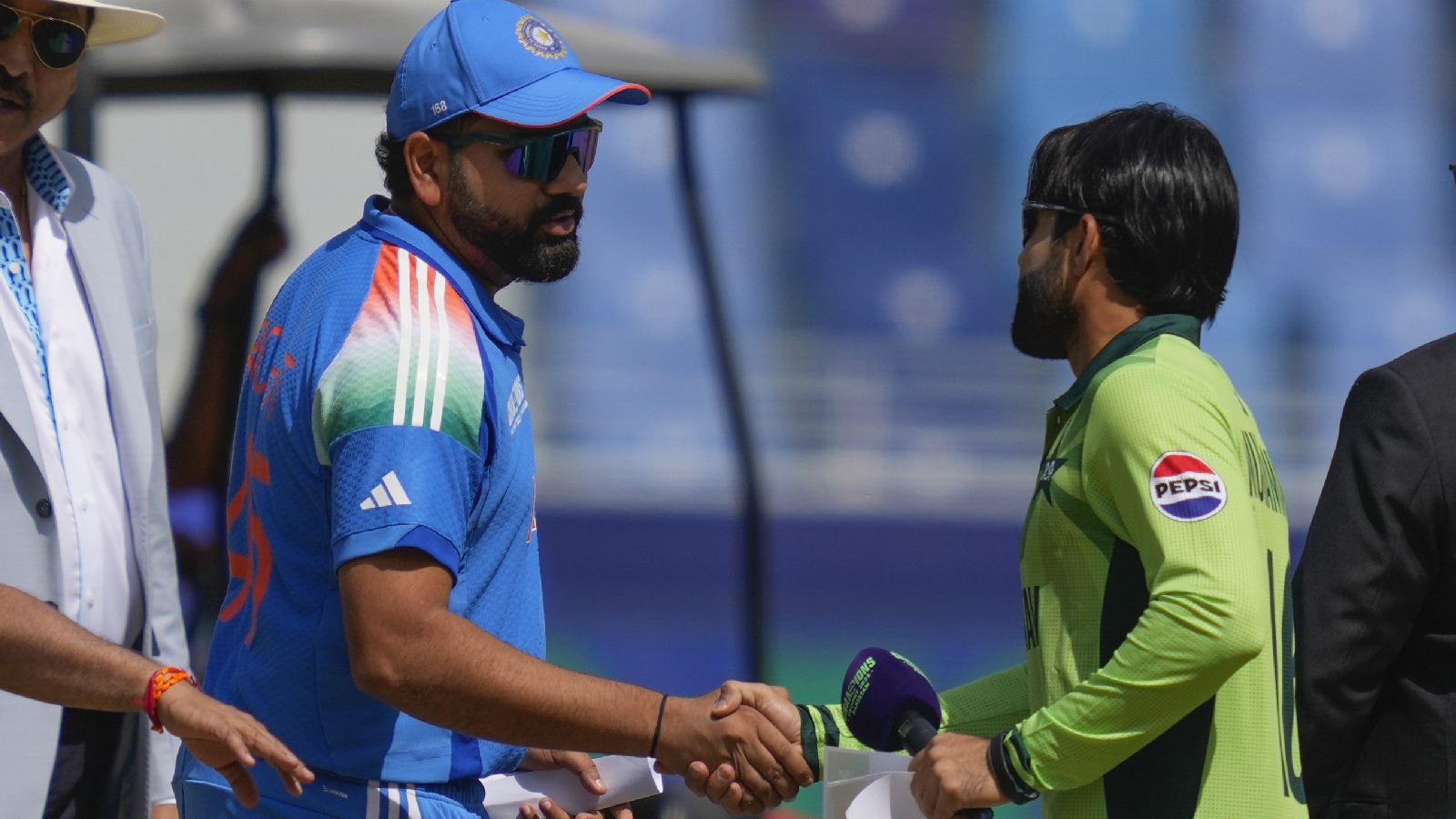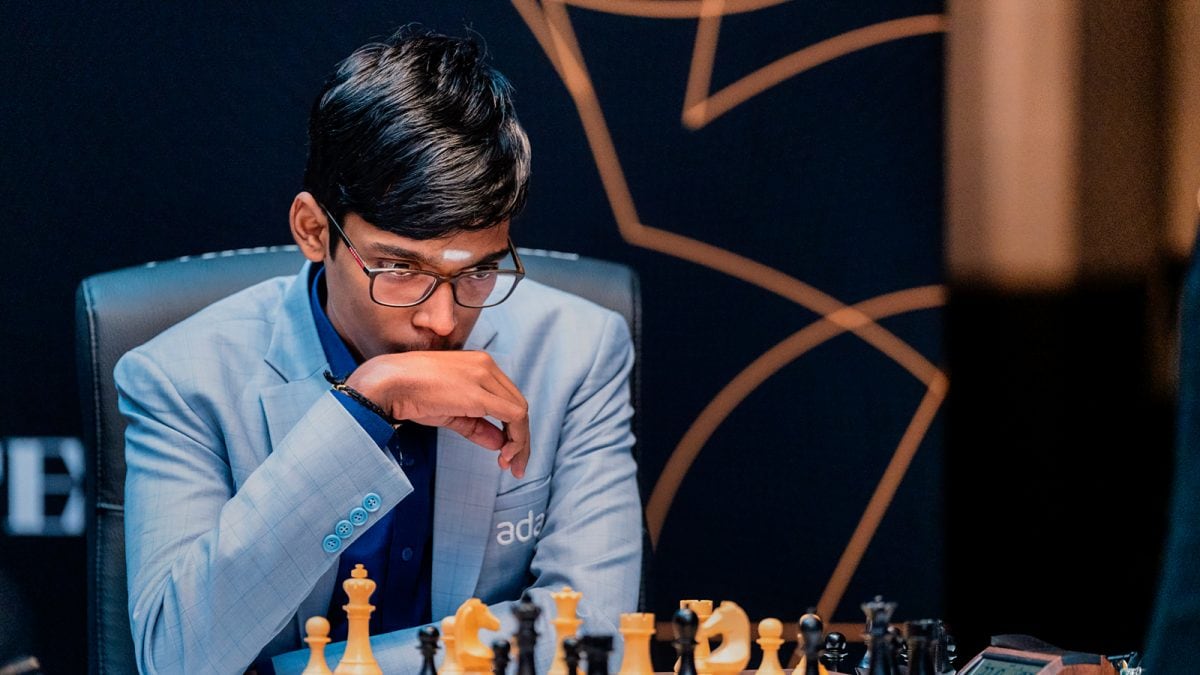ARTICLE AD BOX
Last Updated:August 20, 2025, 15:53 IST
Srinath delivered an insight into the culture of Chess in Chennai, while also discussing the effects of AI and a plausible snapshot of the how the post-Carlsen era might shape up.

GM Srinath Narayanan. (X)
The growth and proliferation of chess in the land of its origin, India, has not been merely a nascent phenomenon, but one that has come to hold a special niche for itself, thanks to the efforts of a multitude of aspects that have propelled the love for the game of strategy into hitherto unacquainted levels with the results for all to see.
The seeds for the current generation of inspirational talent in the game were sown decades ago by legendary names, including Visy Anand and Subbaraman Vijayalakshmi, and Manuel Aaron before the aforementioned duo, who represented the nation with pride and valour at the international stage to immense success.
While the entire nation cherishes the ancient game with roots firmly in the resourceful land, no city embodies the passion for the game in the nation quite like Chennai does.
The city is renowned for its rich culture and tradition, which have fostered a thriving environment for emerging talent. This inspiring atmosphere is particularly notable in the realm of chess, where the influence of the city’s heritage cannot be overstated.
Chennai’s heritage addressed the necessity to have idols to try and emulate as five-time World Champion Vishy Anand’s feats served as a beacon around which like-minded aficionados gathered to enrich themselves in the ways of the board.
Another Grandmaster to come out of Chennai, Srinath Narayanan, elucidated the factors that make the Tamil Nadu Capital City, the cradle of chess.
“I think a few things. One is having a role model and inspiration from Chennai. From the beginning, the first international master, then the Vishay Anand," he said with visible pride and reverence for the legendary Anand.
“I think that was one of the things. Secondly, the cultural perception of chess in Chennai is very positive. We see it very positively. Whereas, that’s not necessarily the case everywhere," he added.
" And I think that’s a major push towards most people taking up chess, most people seeing it positively. So, as a result, we have more numbers everywhere. Both in grass roots as well as the top. And eventually, more numbers of the grass root is what leads to more top left in chess," the GM explained.
The exponential growth of technology and the considerable rise in the quotient of disposable income across the spectrum with the advancing years has also contributed immensely to the growth and development of the game in modern times.
“I think that has mostly to do with the internet. And also, smartphones, internet, all these things are becoming much more accessible. And therefore, chess learning and everything is more accessible," said Srinath.
“We are playing more tournaments or learning chess, finding more people to learn chess with. And sometimes even learning without the help of another human being," he added.
“All those things have become a lot more easier and more accessible now. And also, I think economically we are in a much better situation today than how we were twenty-odd years ago," Srinath explained.
The advancement of technology on an unforeseen scale has ushered in the era of Artificial Intelligence as we know it today, and while the actual impact of the developments on the game of chess yet unknown, Srinath’s impression of the direction the world seems to be headed in provides an insight into the possible permutations and combinations that could amplify the process of learning the sport.
“I think AI is a great tool for everyone. Great tool for professional players. Great tool for coaches as well, as of now."
“But eventually, I do see it moving towards a place where it can start explaining things, start teaching. So, right now, we have an AI which shows what is the best way. But it can’t quite explain the way a human can, right now," Srinath explained.
“But pretty shortly, I think AI will also be able to do that. It will also be able to explain why and get better at doing that in a way which humans can understand. And when that happens, it will help more and more people be able to teach better," the GM said with an eye on the future.
However, he also laid emphasis on the fact that machines can’t serve as like-for-like replacements in terms of Chess education as the game, like most other things, might require an human touch in terms of imparting of knowledge.
“Because one of the limiting factors is you need a coach, you need another human to teach you. And that becomes very difficult to access in general. Some might have access to it, some might not," he said.
“And one of the things which has become a massive equalization factor is the boom of technology. Now, people have equal access to information because of smartphones and etc. Which was not the case a few years ago."
“Information, through the medium of books, was much more restricted to one geography than another. We have a little bit of inequality in terms of the quality of teaching that one has access to. Because whatever can be done only by another human, only certain humans can get access to it," the 31-year-old opined.
Then again, with the speed at which new tech has been dished out in recent years, it wouldn’t be a far-fetched idea to imagine a machine that could be programmed, with the help of humans of course, to emulate the tutoring aspects of the game to a large extent.
“But I feel AI will pretty soon be able to also start explaining things in an excellent way. Which will again accelerate learning even more," Srinath dwelled deeper.
“Yeah, it could happen in some way. There is a lot of existing literature out there and the machine can also be trained to go through that. And learn how things are explained and then be able to reproduce it in a more organized way," the skipper of the Indian team that won the Olympiad to bring national glory said.
Srinath also added that even if technology reaches a point where it can impart knowledge akin to that of what a human being could, the involvement of human beings would still be crucial in the process of development.
“And of course, it can also do it in a completely independent way. Just understanding by itself, by a certain news play and be able to change it. And of course, I don’t say completely blame humans. Because no matter how good it gets, I feel the human will still need to make use of the output," Srinath said.
“And they will be able to contribute towards either explaining the output better or organizing the output better one way or another. But of course, the role will keep changing from a mode of instruction to a more collaborative style of learning where the teacher and the student are physically working together rather than the teacher giving instructions or advising the student how to do something," he elucidated.
“They both have access to a certain information and they collaborate on what and how best they can make use of it."
“I don’t see a lot changing particularly at the top level. But I think a lot can change at the secondary level. Where it becomes more and more easier for an average person to get access to grandmaster level education and more," he said.
With India’s mammoth raise in the world of chess, a post-Magnus Carlsen-era seems to favour the peninsular nation’s dominance with some star names already representing the tricolour, and more promising talent coming along very well.
Srinath voiced that while it remains to be seen who will go on to rule the roost in the foreseeable future, he suggested a system in which multiple players could make the various formats the game provides their own.
“It seems unclear right now who exactly will go on to dominate. We have a certain kind of a fab 4 kind of situation, I would say, amongst the next generation. There is Gukesh, there is Pragg, and there is of course Arjun. And Vincent is also rising very rapidly and there is also Alireza," Srinath said.
“All these players, I think, are very close to each other right now. It’s very hard to see if one particular person will go on to dominate across formats like we had Magnus doing so or Garry before that," he explained.
“Or we could potentially see a situation where a bunch of players are extremely good with very little separating them. And each person being a little better at a certain format."
" So I think it’s likelier to go this way rather than have one clear leader or one clear player dominating across formats," he concluded.
Click here to add News18 as your preferred news source on Google. News18 Sports brings you the latest updates, live commentary, and highlights from cricket, football, tennis, badmintion, wwe and more. Catch breaking news, live scores, and in-depth coverage. Also Download the News18 App to stay updated!
- Location :
- First Published:
August 20, 2025, 15:53 IST
News sports 'Equalization Factor': Srinath Narayanan Opens Up On Cultural Perception, AI Impact And Future Of Indian Chess | Exclusive
Disclaimer: Comments reflect users’ views, not News18’s. Please keep discussions respectful and constructive. Abusive, defamatory, or illegal comments will be removed. News18 may disable any comment at its discretion. By posting, you agree to our Terms of Use and Privacy Policy.
Read More



.png)
.png)
.png)
















 1 day ago
4
1 day ago
4









 English (US) ·
English (US) ·